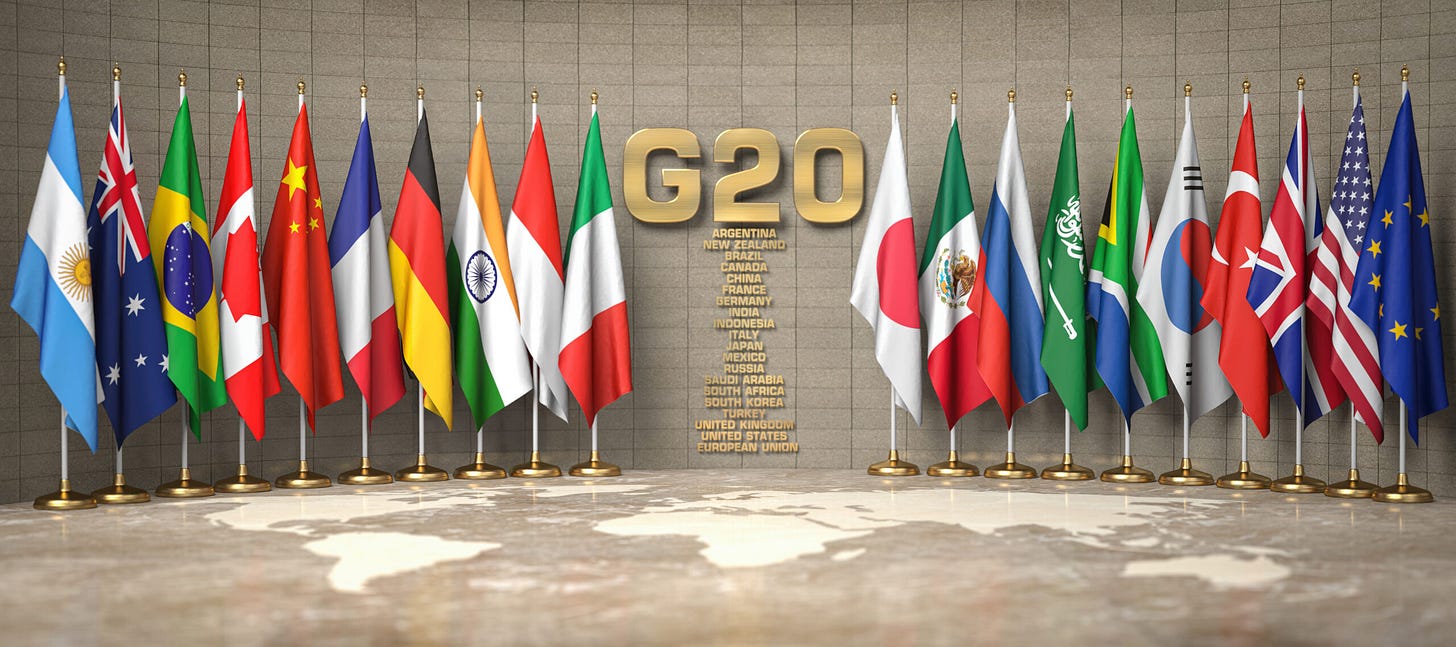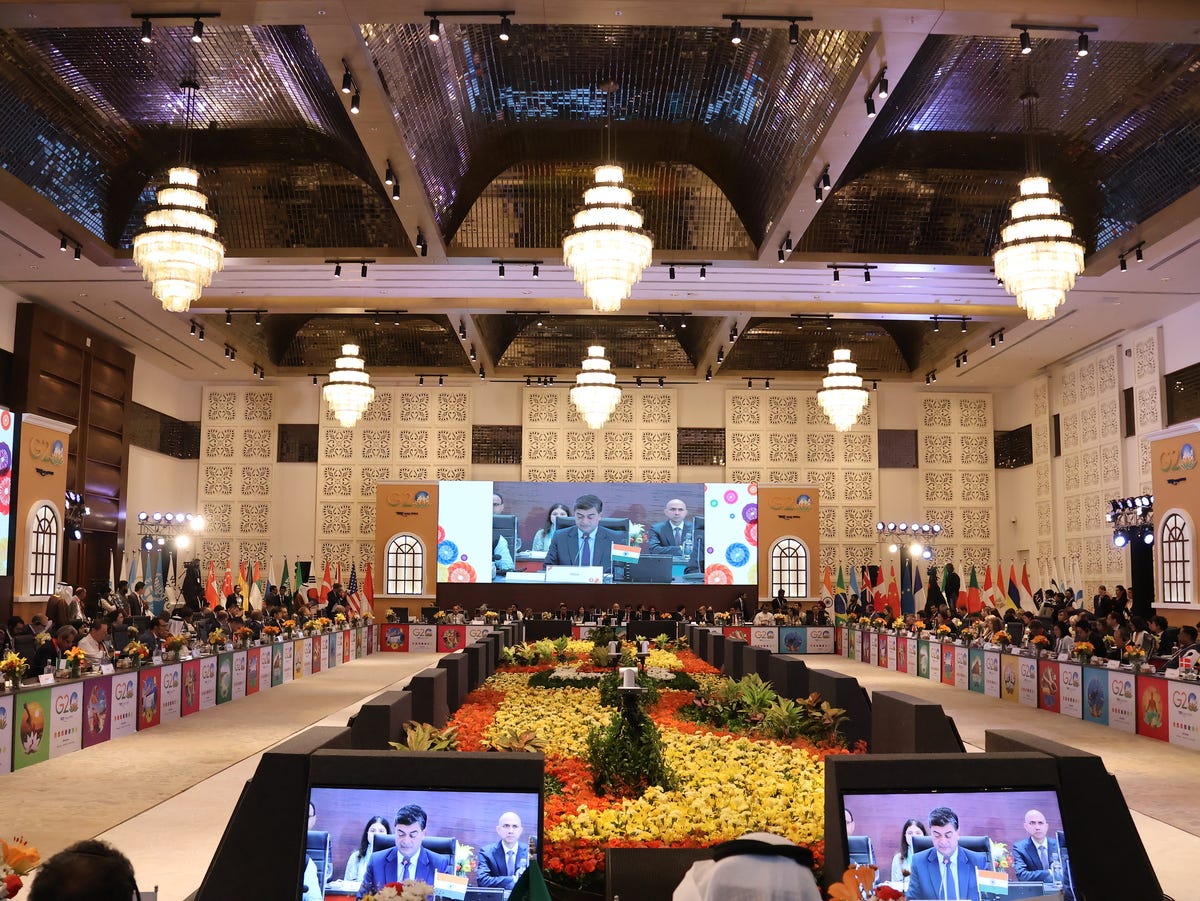Power Japan Newsletter - North-South Divide: G20 Energy Transition Meeting
What the G20 Energy Ministers Meeting revealed

In the age of global boiling, the gulf between the Global North and Global South is becoming more evident.
In late July, twenty nations including Japan gathered in the state of Goa in western India for the G20 Energy Transitions Working Group Meeting. In the words of the Outcome Document, their aim was “to share, collaborate, and build on the sense of responsibility and solidarity … in accelerating the clean, sustainable, just, affordable and inclusive energy transitions, following various pathways.”
But what did they deliver?
They stressed the importance of energy security, acknowledged the need for certain minerals, materials, and technologies, noted the importance of investments, of energy efficiency and energy savings, of grid interconnections and resilience infrastructure, of universal energy access, et cetera.
“We acknowledge,” “we recognize,” “we stress,” “we note.” An outcome that tested the thesaurus’ ability to conjure up diplomatic box-checking lingo for vague and high-minded principles reminiscent of the Sustainable Development Goals.
The big-ticket items that policy wonks the world-over anticipated — phasing-down of fossil fuels and tripling installed renewable energy capacity to 11 terawatts by 2030 — did not materialize. That’s despite the warning by the International Renewable Energy Agency that the share of renewables in electricity generation for G20 countries combined must reach 50% by 2030.
Why the failure?
An innocuous sentence in the 25th paragraph in the Outcome Document hints at the deep schism among the G20 powers:
Given that fossil fuels currently continue to play a significant role in the global energy mix, eradication of energy poverty, and in meeting the growing energy demand, the importance of making efforts towards phase down of unabated fossil fuels, in line with different national circumstances was emphasized by some members while others had different views on the matter that abatement and removal technologies will address such concerns.

According to people familiar with the negotiations, Saudi Arabia and several other countries (most likely China, Russia, South Africa, Indonesia) argued for an approach of cutting emissions from fossil fuel use, rather than phasing them down, much less phasing them out.
Japan sent the Minister of Economy, Trade and Industry Yasutoshi Nishimura to the Working Group. Japan’s position at the meeting was virtually identical to its G7 agenda earlier this year: 1) push an energy transition through diverse pathways, 2) promote innovations, 3) aim for the trifecta of global decarbonization, energy security, and economic growth. After several high-profile coverage of Japan’s promotion of technologies aimed to preserving fossil fuels while curbing their emissions, it’s clear by now that Japan’s position at the G20 is closely aligned with that of Saudi Arabia and company.
What might sound like splitting hairs is, in fact, the yawning gap that has haunted international climate negotiations for decades. It’s the gap between the Global North and Global South. Or, a more helpful description: the gap between nations willing to embrace renewable energy and those critically dependent on fossil fuels.
The former push for the gradual elimination of fossil fuels and replace them with solar, wind, green hydrogen and other clean sources of energy. On the other hand, the latter camp envision a future in which natural gas, oil, and coal play an important role in civilization, while lowering greenhouse gas emissions that come out of these energy sources through techniques like carbon capture and storage (CCS).
Despite the fanfare, CCS still faces overwhelming obstacles as a climate solution. Among CCS applications we have today, the vast majority of captured CO2 comes from natural gas refining rather than from electricity generation. There’s also an unsettling number of cases in which the carbon that’s supposed to be permanently stored underground leaks as a result of accidents. When the captured carbon is utilized (in CCUS), most of it is used to extract more oil.
If international negotiations don’t yield meaningful agreements, should they be abandoned? Is multilateralism dead?
I don’t think so.
It’s true that getting leaders to agree on big-ticket items like quantitative targets for phasing out fossil fuels has always been difficult. But significant agreements have been reached. The reason why citizens can now hold their governments and companies accountable by reference to the “Paris goal” and keeping global warming to “below 1.5 degrees” is because of an international agreement. More recently, 150 countries have pledged to reduce methane emissions. What are these, if not impactful intergovernmental achievements?
But still, the rift between the Global North and Global South is cause for concern. It portends what might happen at COP28, to be held in the United Arab Emirates this November. Highly dependent on oil and gas exports, the UAE opposes reducing the production of fossil fuels. It instead advocates for the gradually cutting their emissions, much like Saudi Arabia, China and Russia at the G20.
In the year witnessing new temperature records across the world, this schism between world leaders is doubly worrying.



